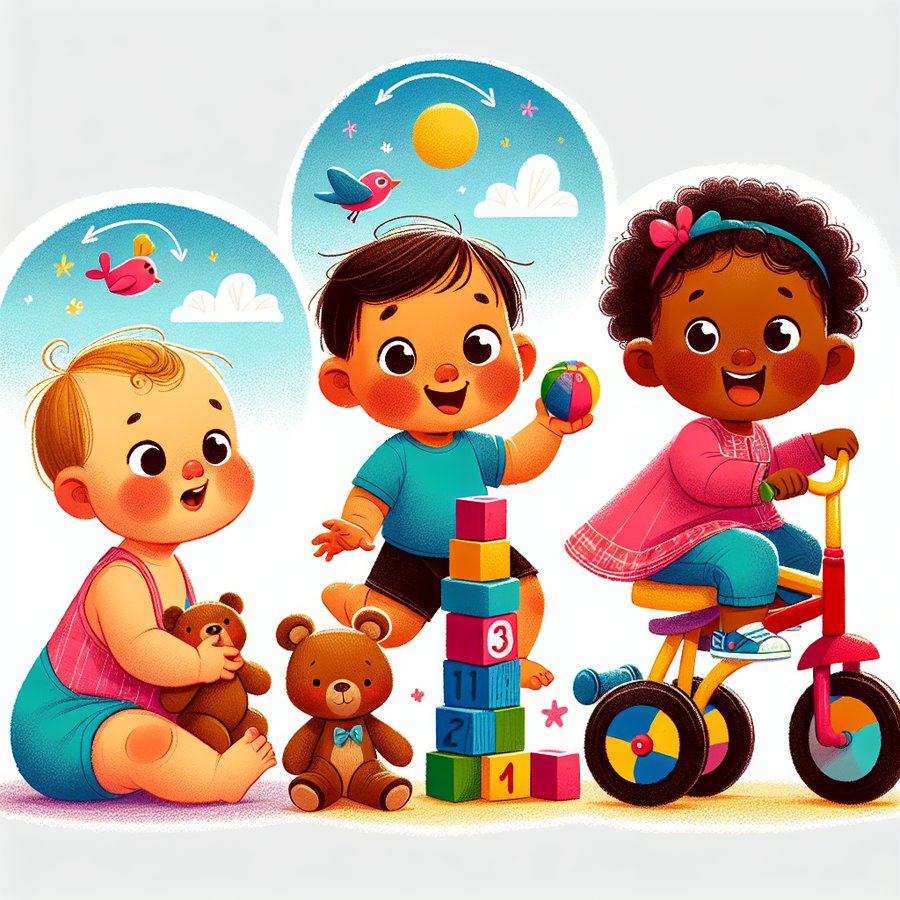From the moment your baby enters the world, the journey of growth and development begins, unfolding a new chapter every day. The period from Zero to Three encompasses some of the most significant developmental milestones in a child’s life, shaping their future learning, behavior, and health. Understanding these milestones helps parents and caregivers provide the best possible support for their child’s early development.
What is Zero to Three?
The Zero to Three phase refers to the critical first three years of a child’s life. It is during this time that children experience rapid physical, cognitive, emotional, and social development. This period lays the foundation for future growth, learning, and development. Recognizing and understanding these milestones allows parents to ensure their child is on the right track and to seek guidance if they have concerns about their child’s development.
For detailed information on developmental milestones, visit Zero to Three developmental milestones reference, a comprehensive resource for new parents.
Physical Development Milestones from Zero to Three
The first three years of life are marked by rapid physical growth. In the first few months, babies develop the ability to lift their heads, roll over, and eventually sit, crawl, and walk. Fine motor skills also begin to emerge, such as grasping objects, transferring items between hands, and pointing. It’s important for parents to encourage these physical skills by providing a safe and stimulating environment.
Strategies to support physical development include engaging in tummy time regularly, offering a variety of toys with different textures and shapes, and creating a secure space for exploration and movement. For more on supporting your child’s physical growth, consider reading about tummy time benefits.
Cognitive and Emotional Milestones in the Zero to Three Years
During the Zero to Three years, babies and toddlers make significant strides in cognitive development, which includes learning, thinking, problem-solving, and emotional regulation. Early cognitive milestones include responding to their name, understanding simple commands, and showing curiosity about their environment. Emotional and social milestones involve recognizing familiar faces, forming strong attachments, expressing a wide range of emotions, and beginning to engage in pretend play.
Parents can support cognitive and emotional development by reading to their child, playing interactive games, and encouraging exploration. Consistent and loving interactions build a secure attachment, vital for a child’s emotional well-being. Learn more about fostering emotional development and attachment.
Late Bloomers: What if My Child is Not Meeting Developmental Milestones?
It’s important to remember that children develop at their own pace, and slight variations in achieving milestones are common. However, if you’re concerned that your child is significantly delayed in reaching Zero to Three milestones, it’s essential to seek advice from your child’s healthcare provider. Early intervention can make a significant difference in helping children catch up in their development.
For concerns related to cognitive or physical development, accessing resources like early intervention services can provide the support and guidance necessary for managing and overcoming developmental delays. Always trust your instincts as a parent and advocate for your child’s needs.
Supporting Your Child’s Development from Zero to Three
Supporting your child’s development involves more than just observing milestones. It includes nurturing a loving relationship, providing a stimulating environment, and seeking help when needed. Regular well-child visits with your pediatrician are crucial for monitoring growth and development. These visits are also an opportunity to discuss any concerns you might have about your child’s progress.
Utilize resources like developmental milestones charts to keep track of your child’s progress. Engage in activities that promote learning and development, such as reading, singing, playing, and exploring outdoors. Remember, every child is unique, and embracing their individuality will support their growth during these formative years.
Embracing the journey from Zero to Three is a beautiful and rewarding experience for both parents and children. By understanding and supporting your child’s development, you lay the foundation for a future filled with learning, discovery, and joy.













